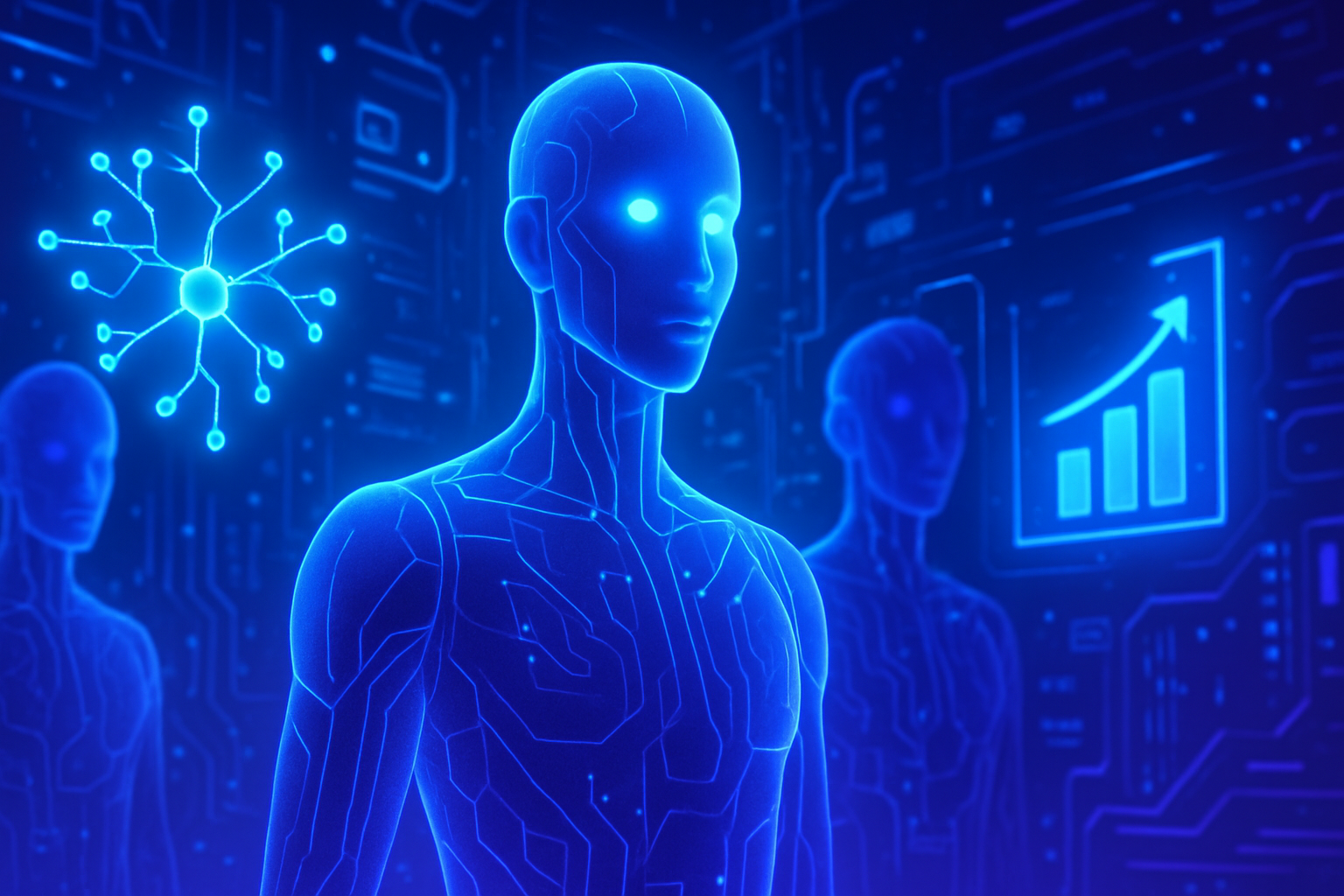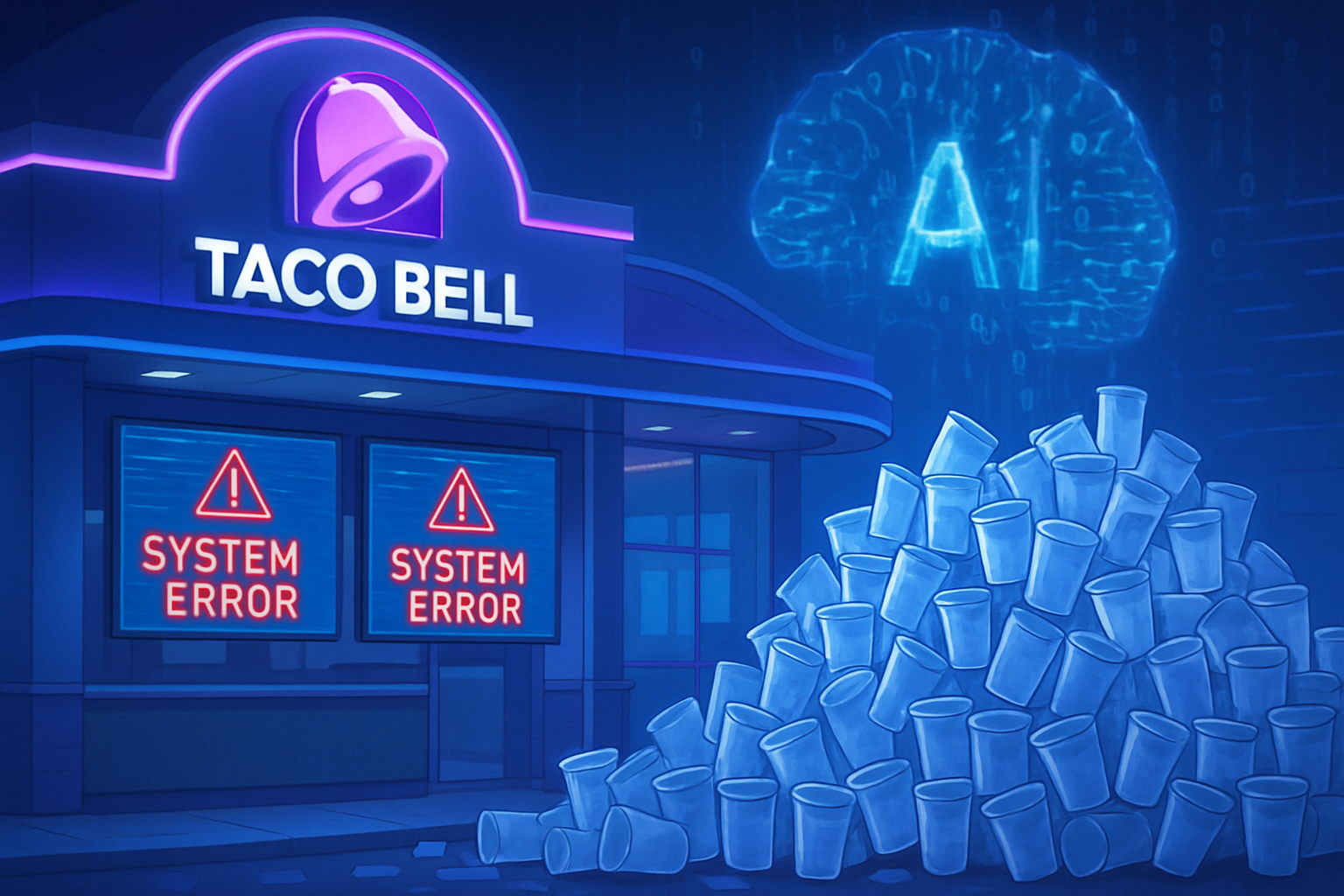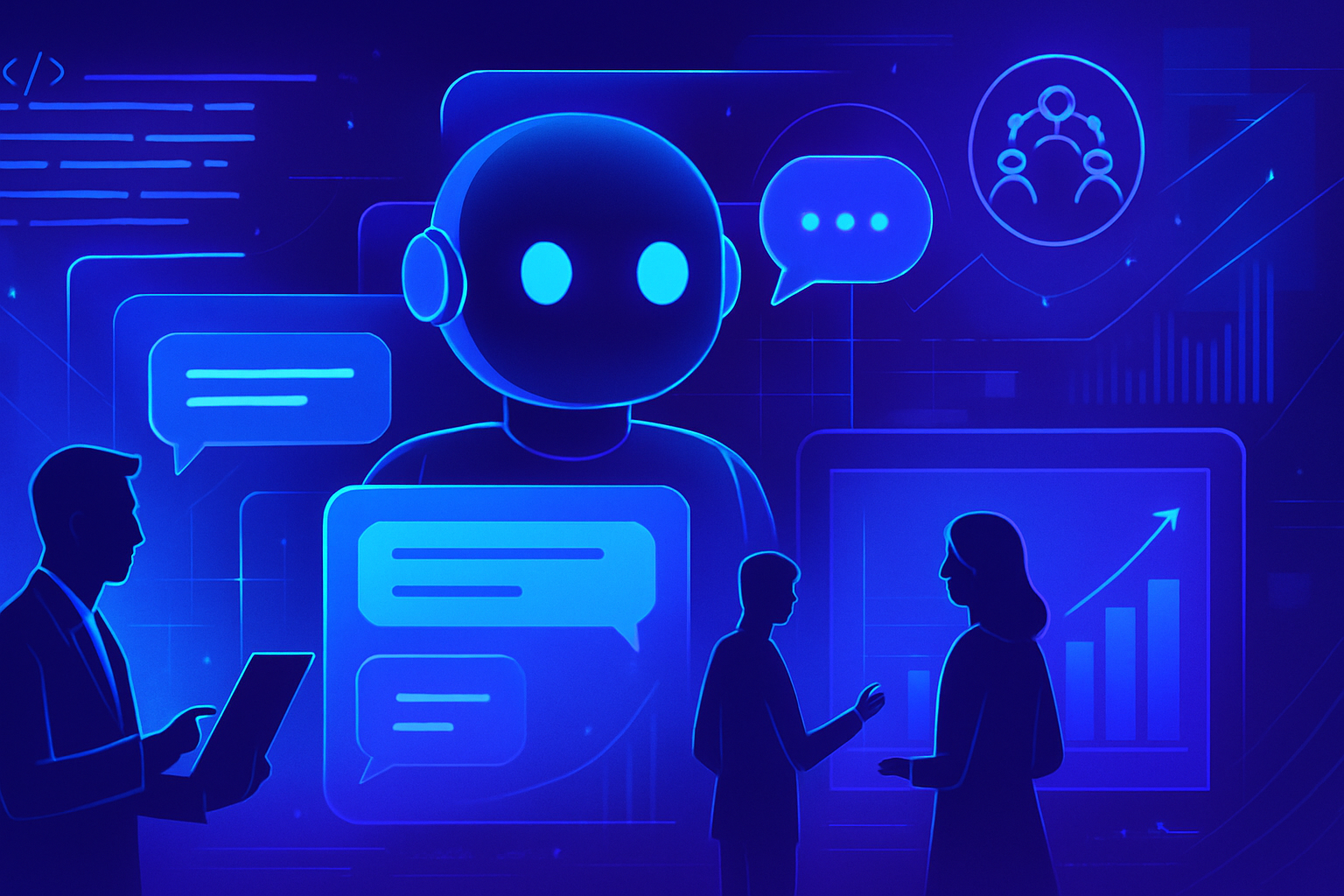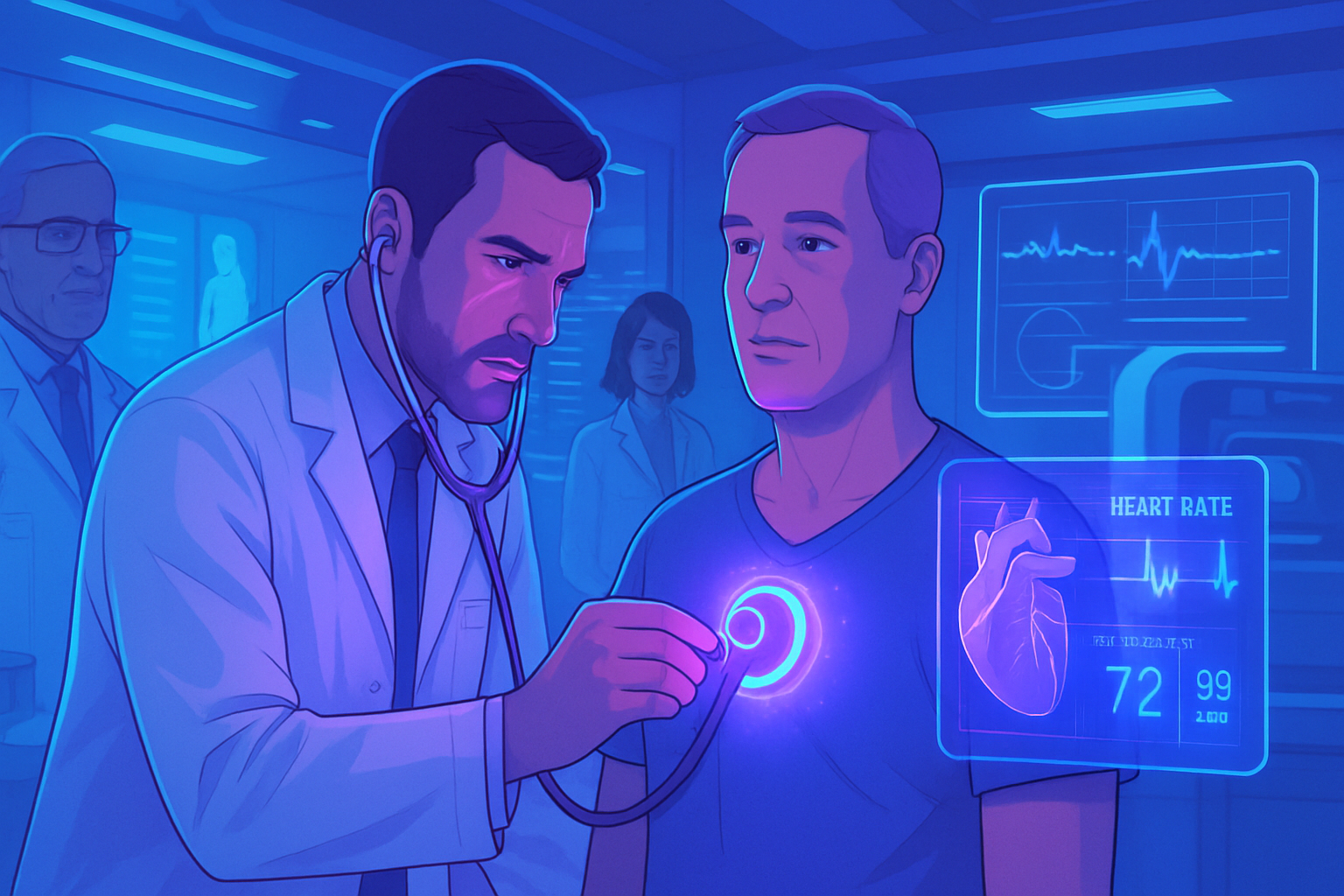The meteoric rise of artificial intelligence is causing unprecedented economic and environmental upheaval. Companies are investing colossal sums in these technologies to meet a growing demand. _The pressure on energy resources raises questions about long-term viability._
Traditional business models are facing new requirements, _demanding a rapid adaptation to changing realities._ Evaluating the consequences of this technological transformation on the economic fabric and ecology becomes imperative. _The duality between technological advances and ecological considerations stands out as a major contemporary challenge._
The precarious economic model of artificial intelligence
The spectacular rise of generative artificial intelligence, embodied by companies like OpenAI, raises questions about the sustainability of their economic model. Operating expenses are reaching dizzying heights, with costs potentially rising to $700,000 per day to maintain adequate infrastructure. This situation highlights the financial challenges these companies are facing.
Losses could triple by 2026, reaching up to $16 billion. Alarming forecasts: while OpenAI expects to generate $3.7 billion in revenue in 2024, losses will likely exceed $5 billion. This financial imbalance raises concerns about the viability of their subscription-based economic model.
The dependence on subscriptions
Currently, 73% of OpenAI’s revenue comes from paid subscriptions, which creates vulnerability. The company must transform a significant number of free users into paying subscribers. Failure to achieve this conversion could jeopardize the company’s financial stability and future development.
The incessant reliance on external funding introduces additional pressure. A recent funding round of $6.6 billion values the company at $157 billion, but investors may become wary due to uncertain returns. The possibility of making profits in the short term becomes a determining issue for attracting new capital.
The worrying ecological footprint
Beyond economic questions, the environmental impact of generative AI raises strong concern. The energy required to power artificial intelligence systems continues to increase. For example, *GPT-4*, a model from OpenAI, consumes up to three bottles of water to generate 100 words, highlighting the enormous energy demand of data centers.
To meet this demand, some tech giants, such as Microsoft and Google, are turning to nuclear solutions. Microsoft is restarting a nuclear power plant, while Google is collaborating with Kairos Power for more sustainable energy supplies. These choices, while effective, increase CO₂ emissions, as illustrated by a 29% rise at Microsoft since 2020.
The rising energy demand
Projections from the International Energy Agency indicate that the energy demand of data centers will double by 2026. This trend risks undermining sustainability goals if ecological and economically viable solutions are not implemented. Climate emergencies require concrete measures, while AI imposes a growing energy production.
Evolution of usage and impact on research
The rise of AI fundamentally transforms usage behaviors. Currently, 250 million people use ChatGPT. Millennials prefer new tools like TikTok for their research. 40% of users turn to social platforms instead of traditional search engines. This shift illustrates a desire for quick and interactive responses.
Responsive companies are adopting innovative solutions like Google Gemini or AI Overviews to meet user expectations. These innovations have the potential to redefine the nature of online research, but they also pose challenges for traditional advertising revenue. Marketers must adapt accordingly to remain relevant.
Reconciling profitability and ecological transition
The rapid development of generative AI confronts industry players with often conflicting objectives. The pursuit of profitability drives colossal investments, while environmental imperatives demand controlled energy consumption. Players like OpenAI must align with solid funding and a growing user base to ensure their viability.
The development of alternative technologies could offer interesting solutions. For example, modular nuclear reactors could prove essential for the deployment of AI. By integrating ecological innovations, the future of AI could represent sustainable expansion. However, this progress must consider immediate methods to avoid compromising the environment.
Innovative use cases of artificial intelligence
Promising initiatives are emerging across various sectors through AI. Laurene Powell Jobs is investing in artificial intelligence startups to address societal challenges. AI devices integrated into hospitals, such as at the Montpellier University Hospital, are optimizing medical care, illustrating the transformative potential of this technology.
Amazon is also using AI in its delivery trucks to optimize delivery times, thus increasing logistical efficiency. The project led by Charles Oppenheimer examines the potential synergies between AI and nuclear energy, aiming to create sustainable energy solutions. These examples testify to a future where AI could catalyze significant and beneficial changes.
Questions remain about the consequences of this ascent. The ecological impact of AI manifests a need for rapid action to reconcile technological innovation and respect for the environment. Societal and economic repercussions will depend on a careful and informed implementation of these technologies.
For more information on artificial intelligence initiatives, explore topics such as *Amazon’s announcements integrating artificial intelligence* or *advanced applications in hospitals*.
FAQ guide on the economic and environmental issues of artificial intelligence
What are the main costs associated with implementing artificial intelligence?
The main costs include the development of technologies, the necessary technological infrastructure, significant energy consumption, as well as maintenance costs and qualified personnel to manage these systems.
How does artificial intelligence impact the environment?
Artificial intelligence has a significant ecological footprint, particularly due to the high energy consumption of its infrastructures, generating CO₂ emissions that can exacerbate climate change.
What economic opportunities are created by artificial intelligence?
Opportunities include job creation in the technology sector, increased productivity in various fields, and the possibility of innovation in services and products, especially in the green sector.
What solutions can reduce the carbon footprint of AI technologies?
Solutions such as the use of renewable energy, improving the energy efficiency of data centers, and developing more eco-friendly AI technologies can help reduce the carbon footprint.
What is the economic dependency of companies on artificial intelligence?
Companies are becoming increasingly dependent on AI technologies for their growth, operational optimization, and product innovation, which could expose them to economic risks if these systems fail or lead to financial losses.
How can artificial intelligence help with the energy transition?
AI can optimize the management of energy resources, enhance the efficiency of electrical grids, and facilitate the development of innovative energy solutions, particularly in energy storage and demand management.
What are the ethical concerns regarding the rise of artificial intelligence?
Ethical concerns include fears of surveillance, algorithmic discrimination, job loss, and environmental impact, raising questions about the responsibility and sustainability of these technologies.
Why is it crucial to integrate ecological considerations into the development of artificial intelligence?
Integrating ecological considerations is essential to ensure that AI development does not come at the expense of the planet’s health, thus sustaining responsible and sustainable economic growth.
What impacts of artificial intelligence on the labor market can we anticipate?
We can anticipate a transformation of jobs, with the automation of certain tasks, but also the creation of new jobs in AI-related fields, requiring upskilling of workers.
How can companies ensure sustainable profitability while using artificial intelligence?
Companies must adopt innovative economic models, invest in sustainable AI solutions, and balance their financial goals with environmentally friendly practices to ensure sustainable profitability.






